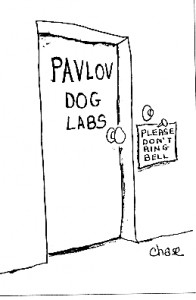New Years Resolutions To Save Your Marriage
https://savethemarriage.com/stmblog/wp-content/themes/corpus/images/empty/thumbnail.jpg 150 150 Lee H. Baucom, Ph.D. Lee H. Baucom, Ph.D. https://secure.gravatar.com/avatar/669b7e375d93f77521ddaba08adb8063?s=96&d=blank&r=pgThe New Year. A tim e for reflecting and resolving. A time to let go of what has been and look toward what could be.
e for reflecting and resolving. A time to let go of what has been and look toward what could be.
My rational mind knows that in reality, it is just another day. But my deeper soul sees something more profound.
And so, each year, I spend a good bit of the last part of the year in reflection of what has happened in the last year. I look at the good and the bad.
But I don’t stop there. I look forward to what potentials there are in the new year. What could become? What could develop? What turns can I help my life make?
My family has a tradition of picking a single word. That word represents what we want to live into. It is a word that sums up our coming year as an overall theme.
One year, I knew it was going to be busy and that my energy would be pulled in many directions. That year, I chose “breathe.” I used that as a reminder to settle down, to be present, and to let the stress fall away.
That word appeared at the top of every day on my calendar that year. And I practiced breathing, both metaphorically and physically.
My word this year remains a secret. I will reveal it to my wife and children, but to nobody else — at least until I know I am living into it!
Let me encourage you to ponder your word for the year. One single word. It will represent what you are moving into.
That may be as much “resolving” as you wish to do. But many want to have some specific resolutions, so I have a few suggestions. These are suggestions for resolutions if you are struggling with your marriage. They are powerful resolutions, though, that can be applied anywhere, in any life.
5 Resolutions to Help You Save Your Marriage
1) Resolve to be growth-oriented. See yourself as someone who is always in the process of becoming. You are not static, unable to change. You are not the “old dog,” unable to learn new tricks!
You are always growing and developing. Resolve to notice it, embrace it, and pursue it.
Take up new hobbies and pursuits. Become the better person you know you have hidden within you. Challenge yourself to be on a path of improvement and betterment.
In her book, Mindset, Carol Dweck states that we can either have a growth mindset or a fixed mindset. She notes that many of us have a fixed mindset in many areas of our lives. We come to believe we cannot change, cannot learn, and that things are “just the way they are.”
That belief is fiction.
A growth mindset is the realization that you can grow and improve in any area in your life — if you choose to!
That does not mean you can be anything you want to be, but that you can be better at anything in which you want to improve.
Oh, and with relationships, when we say our relationship is stuck and cannot change, we have adopted a fixed mindset. When we say the same about our spouse, we have placed them in a fixed mindset.
When, instead, we look for areas to learn and grow, the world opens before us. New potentials appear.
Resolve to be oriented toward growth!
2) Resolve to be expansive. I believe we can either live contractively (based in fear) or expansively (based in possibility). Be expansive.
That does not mean you will stop experiencing fear. Only that you will choose to not be steered by fear. You will not allow fear to constrict and contract your life.
Living expansively is not “living large” or “having a big head.” In fact, people do both of those when they are living constrictive lives. They are fearful of what others will think, so they compensate. They give into the fear of “what others may think.” They end up living lives that are reflections of what they only think others are thinking.
In other words, they reflect the false belief that people are watching and that what they see matters.
When we live expansively, suddenly we find new options and new creativity. When we live expansively, the world sees our potentiality and begins to move with us, not against us.
Does that mean that life will suddenly be trouble-free? No. Only that we will not be adding to our own troubles.
In marriage, when we begin to be fearful of the reactions and/or rejections of our spouse, we live contractively. When we are expansive, we are looking for more connection.
When we are living contractively, we are asking “what am I getting from this marriage?” When we are living expansively, we are asking “how can I put more into this marriage? How can I love my spouse more?”
Resolve to live more expansively!
3) Resolve to show up. Woody Allen said “Eighty percent of success is showing up.” I think we underestimate what that means. Showing up, really showing up, is being truly present. It means bringing your own greatness into the moment. (And yes, we all have greatness!)
Think of the difference between just being there and really showing up. Think of the times when people are around you, but you are only partly there. You are half-listening, looking at Facebook or texts on your phone. You are looking through the mail or at the newspaper when your spouse or children are talking to you.
Showing up is when you are talking WITH them. You are engaged and listening. You are not either pretending to listen or waiting for your turn to respond. You are engaged.
When you are showing up, you are truly engaged in the moment and with others.
What happened to a Facebook “friend” or in the newspaper is very hollow, compared to what happened to those that are with you and who love you.
A marriage in trouble often has two people who no longer really even show up with the spouse. They are there, but not truly THERE.
So resolve to show up MORE in life this year!
4) Resolve to take full responsibility. Notice that I said “responsibility,” not “blame.” Looking for blame is fairly useless and mostly unproductive. But taking responsibility for life. That is major. Life changing.
If you are in a building that is on fire, if you stand around and ask, “who did this? Who caused this fire?,” you are not likely to survive. If, however, you say “I am taking full responsibility to get myself and anyone else I can out of here,” then the situation has drastically changed.
We live in a culture that is caught up in saying, “Not me. I didn’t do this. Someone else needs to fix it.” We are surrounded by “It’s not my fault,” which then becomes “It’s not my responsibility.” Look no further than Washington, DC, for proof of this.
Taking responsibility is about accepting that you have a role in making life better. That no matter what has happened, you can determine where you end up.
Resolve to not blame yourself, but to take full responsibility for where your life leads!
5) Resolve to forgive and let go. Anne Lamott said “Not forgiving is like drinking rat poison and then waiting for the rat to die.” And yet, we often decide to hold onto all that old baggage. We decide to carry it around, regardless of what it does for us.
I truly believe that forgiveness is almost entirely for the benefit of the forgiver.
When I speak about forgiveness, I start having people list “unforgiveables.” These are things for which someone should simply not be forgiven. Often, the list includes things done to innocent children, but also includes murder and other grisly crimes.
I then point out that such an approach assumes the forgiveness is for the offender, not the forgiver.
It is too bad we have been infected by this belief. Because I think this is what leads us to hold onto past hurts and perceived slights. We decide to hold onto the pains and hurts, so the other person is not “let off the hook.” So instead, we just drag around the pain and memories.
What happens next? We start to blame. Then we stop showing up. Then we start living contractively. And then we stop growing.
In other words, to do the other 4 resolutions, you also have to resolve to forgive. Not for a single event, but as a belief in life.
Trust that forgiveness will release you and don’t worry that it might let the other person off the hook. In reality, it just gets you off the hook.
Oh, and notice how many marriages are in trouble because people simply will not forget. They commit to holding onto the hurts and slights that are a side-effect of living with another person in such intimacy.
Resolve to forgive more this year!
My hope for you this New Year is that you will find more and more of life in your life. You will find more and more connections in your connections.
I wish you a grand New Year!
If you haven’t already, I invite you to grab my Save The Marriage System by CLICKING HERE.







